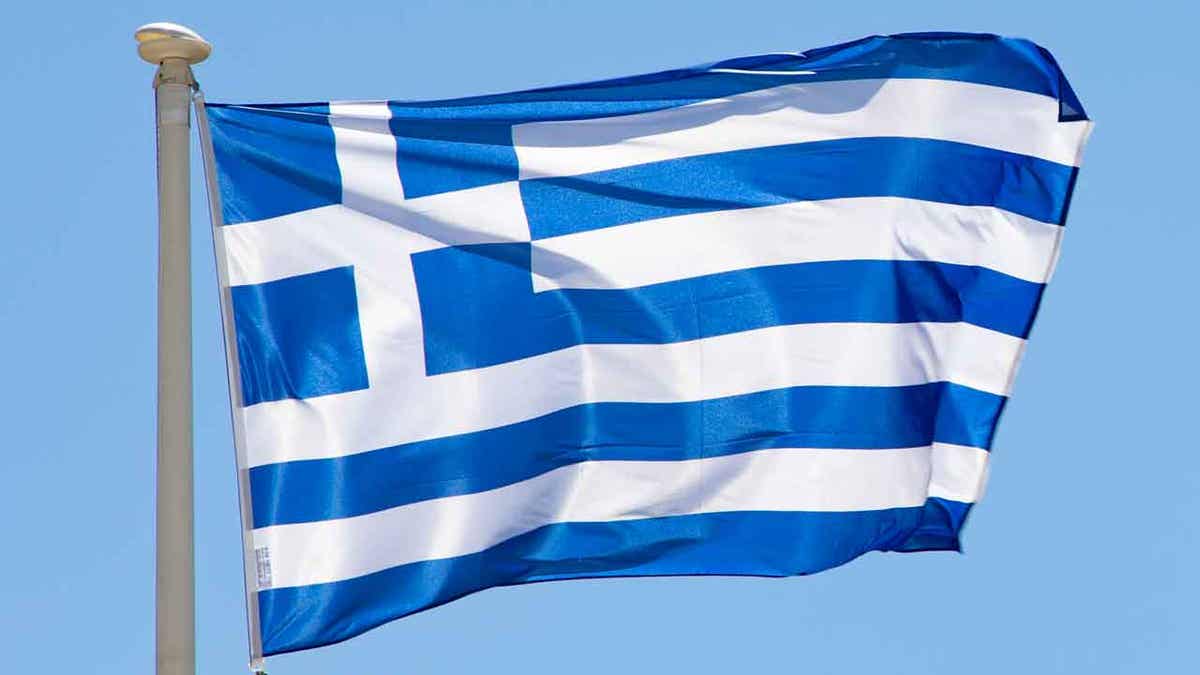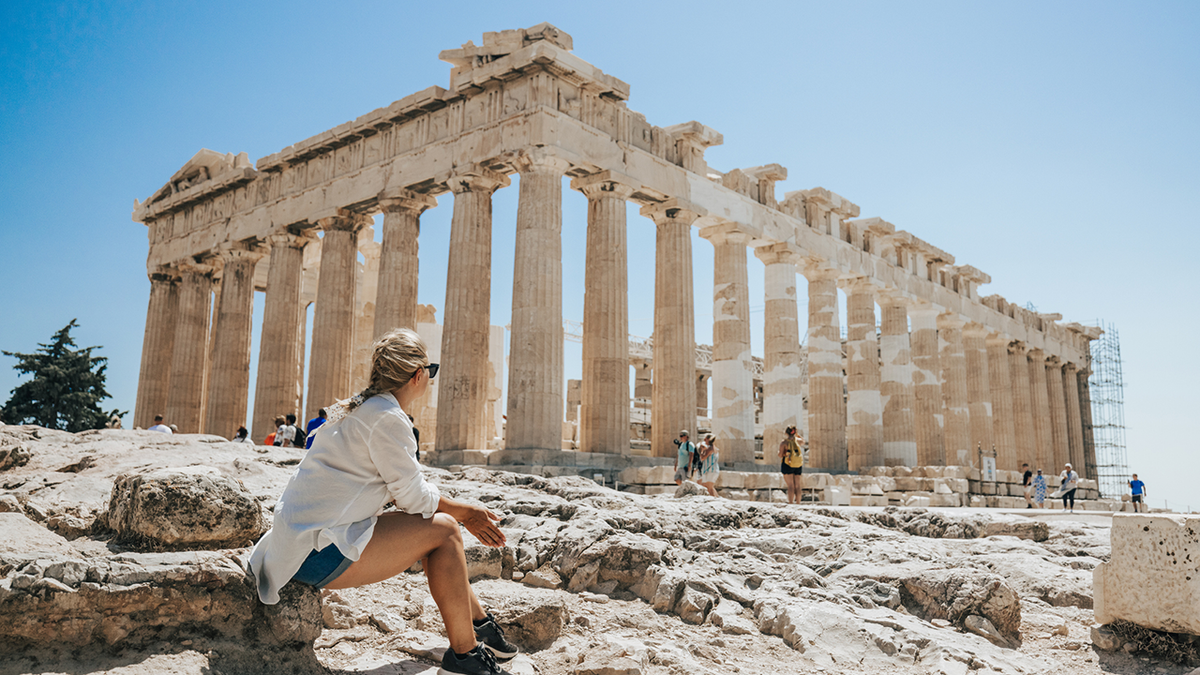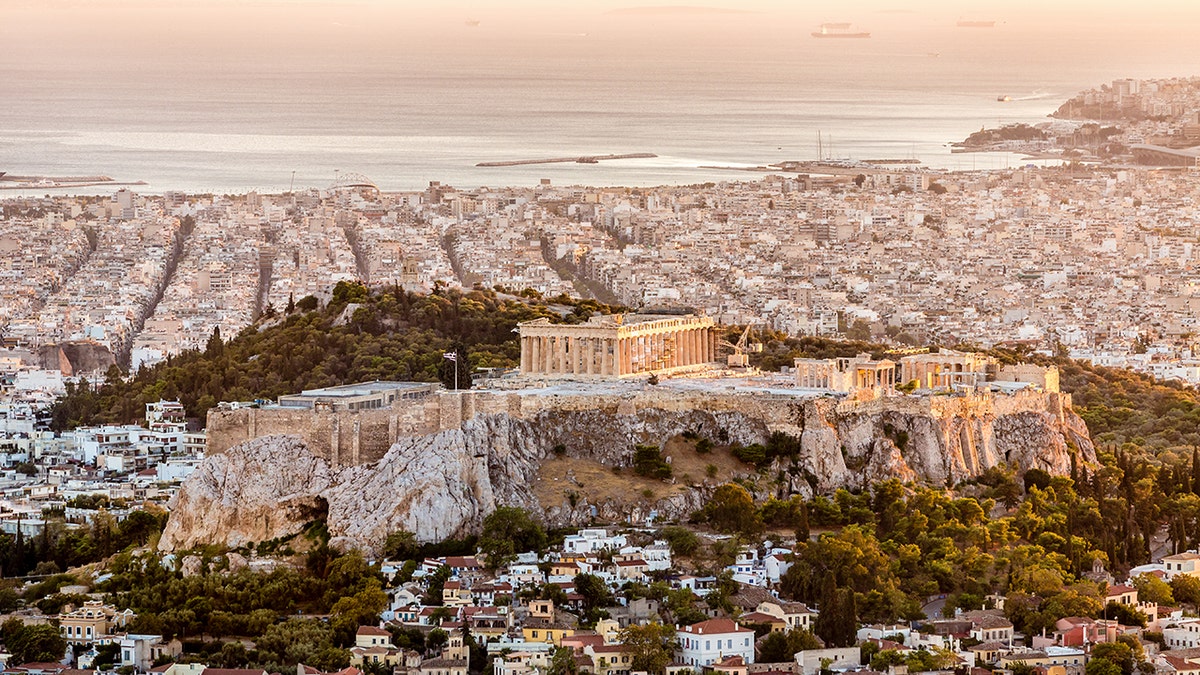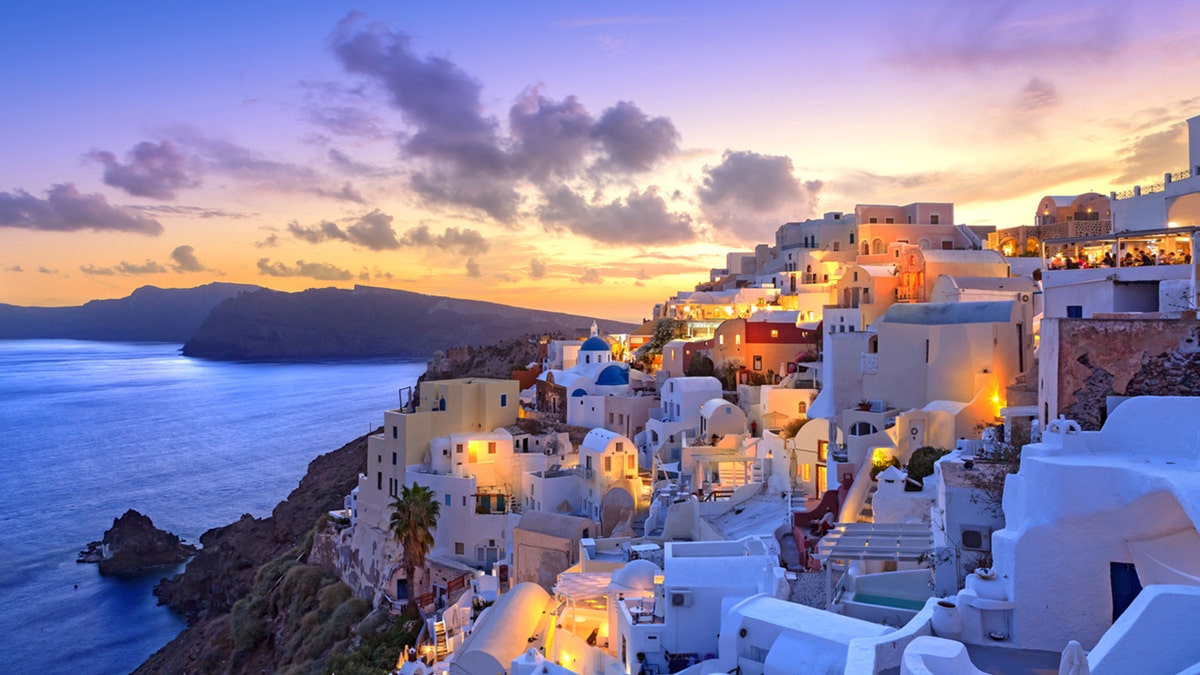INTERNACIONAL
Greece travel guide: Popular tourist destinations from Athens to the islands

Greece is a country that has always loomed large in the American imagination. With its beautiful Mediterranean landscape, towering mountains and over 6,000 islands, it is a nation where magical memories are made.
It’s also a nation steeped in rich history. One of the world’s great ancient civilizations, it made pivotal contributions to government, philosophy, literature and the arts, forming the world’s first democracy in Athens in 508 BC.
With a large and vibrant population of Greek Americans, Greek cuisine has spread far and wide. From rich lamb dishes, moussaka, spanakopita and souvlaki, to gyros topped with Greece’s signature sauce, the yogurt-based tzatziki, Greek dining features many classics that have reached international acclaim.
Baklava, a rich pastry of honey and a blend of nuts and spices, is as associated with Greece as ouzo, the national spirit, an anise-flavored aperitif that is almost an essential to accompany any meal.
EXPLORE GREEK CUISINE: DIVERSE FLAVORS, RICH HISTORY, AND FRESH INGREDIENTS

The Greek flag (Nicolas Economou/NurPhoto via Getty Images)
In the modern era, Greece saw occupation by Italian and German forces during World War II but emerged as a democratic market-based economy during the post-war reconstruction of Europe.
As the Iron Curtain of the Soviet Union descended upon Eastern Europe, Greece was spared the ravages of communism, aided by forceful diplomatic intervention on the part of the United States and United Kingdom to ensure that the nation did not fall under the Soviet sphere of influence.
Though Greece has endured a somewhat turbulent social, political and economic history since, including a civil war and a series of economic crises, it remains an exceedingly popular tourist destination and has such varied appeal it offers something for everyone.
Athens
Athens is the nation’s capital and likely the start and end of every Greek excursion. Not only does it have the nation’s primary international airport, but nearby Piraeus is also the nation’s major port, where enormous ferry ships connect the mainland with the islands on a daily basis.
BECOME AN INTERNATIONAL TRAVELER ON A BUDGET BY VISITING THESE 13 AFFORDABLE DESTINATIONS AROUND THE WORLD

Athens has history and great beaches. (iStock)
Athens is a city teeming with history, culture and architecture and is best explored on foot. Top destinations include the Acropolis, with its iconic Parthenon; the Ancient Agora; Monastirki and its accompanying market; and the National Archaeological Museum. The Parthenon is the most famous attraction in Greece.
It is a temple commissioned by Pericles in 447 BC and dedicated to the patron goddess of Athens, Athena. Perched on a rocky promontory overlooking the city, it still makes for a stunning sight today.
Thessaloniki
Thessaloniki is the second-largest city in Greece and a fascinating tourist destination in its own right. Its most famous icon is the 15th-century White Tower, which sits on the waterfront downtown. Contained inside is an interesting and thorough exhibition documenting the city’s history and its role as a crossroads of civilizations.
The Roman-constructed Arch of Galerius, built to commemorate an epic victory over the Persians, stands next to the Rotonda, which historians believe may have been built as a mausoleum for Galerius.
VACATION DESTINATIONS ARE OFTEN CHOSEN FROM POPULAR BOOKS ON THE SHELF, STUDY SAYS: SEE IF YOU’VE READ THESE

Just south of Thessaloniki is the laid-back beach town of Kalamaria. With affordable prices for seaside hotels and dozens of excellent restaurants offering traditional Greek dishes, sushi, pizza and everything in between, it has long been a popular choice for budget-conscious travelers, both foreign and domestic. It’s also easily accessible, just 10 minutes from the airport.
Mykonos
Mykonos has established a reputation as one of the most glamorous Mediterranean vacation destinations. It features fine dining, a raucous nightclub and entertainment scene and long, pristine beaches, including Kalafatis and Platys Gialos. It has long attracted an artistic and intellectually-minded clientele with its live music, theater, dance and art galleries.
STUDY SUGGESTS MEDITERRANEAN DIET COULD BOOST MALE FERTILITY: ‘CRUCIAL ROLE’
An added bonus is its proximity to the island of Delos, one of Greece’s most important archaeological sites. It is the birthplace of Artemis and Apollo in Greek mythology and served as an important place for religious pilgrimage throughout Greek history. Today, visitors can enjoy mosaics, temple ruins and a trio of 7th century BC structures — the Lion Terrace, the Theater and the Theater Quarter.
Santorini
Gleaming white Santorini, with its internationally renowned sunsets, is arguably the most famous island destination in Greece. This volcanic island features black sand beaches, towering cliffs and quaint villages and is regularly visited by major cruiselines.

Sunset at dawn in the village of Oia, Greece (iStock)
Fira, the capital city, is perched on a towering cliff and offers stunning views of the surrounding islands. On the northern tip of the island, westward-facing Oia is famed for having the most beautiful sunset in the Mediterranean. Thousands of tourists gather daily at the end of the day to watch the last rays of sunlight gleam across the picturesque white-washed buildings.
CLICK HERE TO GET THE FOX NEWS APP
For those seeking a laid-back beachfront experience, Kamari, on the island’s eastern side, is an excellent choice. Not to be missed is the Thera ruins, which tower over the island, and are best reached by an ATV, which can be rented at reasonable prices at numerous locations around the island.
INTERNACIONAL
El peligroso disparate de la inteligencia artificial en el que cayeron Trump y Biden

Diferencias
-
CHIMENTOS2 días ago
Julieta Prandi contó lo que nunca antes sobre Poné a Francella: “Pasé situaciones incómodas”
-
POLITICA2 días ago
José Luis Espert, polémico sobre la inseguridad: «A los chorros hay que llenarlos de agujeros y colgarlos en una plaza pública»
-
POLITICA3 días ago
El Gobierno denunció a Cristina Kirchner por cobrar en sus jubilaciones el plus por zona austral mientras reside en la Ciudad
-
POLITICA3 días ago
«Lanus en la oscuridad: Cortes de luz eternos y gestión cuestionada de Julián Álvarez»
-
POLITICA1 día ago
Tras la salida de la OMS, Javier Milei evalúa ahora que Argentina abandone el Acuerdo de París
-
POLITICA2 días ago
El Gobierno denunció a Jones Huala por «incitación a la violencia colectiva» tras reivindicar los incendios en la Patagonia








































